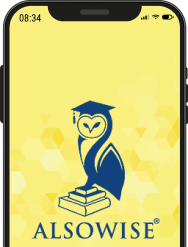Reading is a rare skill, skilled readers rarer still …

Reading is NOT a natural skill. It is very much an acquired skill, which requires dedication and perseverance to become an expert practitioner. This process is not easy. The evidence seems to indicate that despite the preponderance of people with at least an average intelligence quotient (IQ) who have also received an adequate education, very few evolve to become skilled readers.
In recent times, there has been a pronounced shift from reading books to reading in the digital medium. The impact of this has been two-fold: while digital access has opened the doors to almost limitless information, this in turn has put the onus on readers to develop critical thinking skills to make the most of the plethora of information at their fingertips.
Empirical testing suggests the presence of a “screen inferiority complex”: everything else being the same, a long passage read on paper is generally better understood than if it is read on a screen. There are several things which can affect this. Reading a magazine article or anything else for a span of up to 20 minutes is not significantly affected by the choice of medium. The reverse is true when reading for critical context, research or study, in which case physical copy has been shown to be more beneficial for comprehension and retention. Being pressed for time exacerbates the impact of screen inferiority, so you’re better off with hard copy in this case. Most tellingly, evidence suggests that skilled readers are less susceptible to screen inferiority.
Dry eyes and visual fatigue, commonly associated with staring at screens for extended periods, may help explain screen inferiority to some extent. On the other hand, most digital reading (typically, social media posts, online news briefs, short e-mails) entail rapid information acquisition. The basic reading skills needed for this do not equip us to comprehend longer, more complex texts. An affinity for audio-visual content also tends to drive screen inferiority when it comes to the written word.
In the future, readers may need to rely on “reading strategies” matching various reading media to different goals: resorting to hard copy for a more in-depth understanding of complex issues, while sticking to digital reading for lighter matter like entertainment and personal communications.
But first one must acquire essential reading skills, which may even be developed on a screen. And if you feel that you lack this skill, it’s never too late to become a skilled reader. It takes a little dedication and time. But it’s an investment that is guaranteed to succeed.
And with ALSOWISE® you can hone your reading skills while:
- Setting your own pace
- Choosing topics that interest you
- Using your own device
How does the ALSOWISE® Programme enable you to acquire this skill?
The ALSOWISE® Programme is designed to enhance proficiency in the English language, with a critical emphasis on honing reading and analytical skills.
The programme leverages technology to encourage reading, in which users are made to listen, read, and test their unaided recall – through our carefully developed ReadAlongs – on a mobile device of their choice. This goes a long way in developing reading as a skill and as a strength.
It is never too late to acquire this valuable skill. So, if you’re looking to improve your English reading and communication skills with a view to standing out in a crowded field, and getting ahead in your career:
- Download the ALSOWISE® app today.
- Register immediately – the process is quick, simple and FREE.
- Sample the FREE Demo and discover for yourself that ALSOWISE® is the English language enhancement app that you were looking for.




